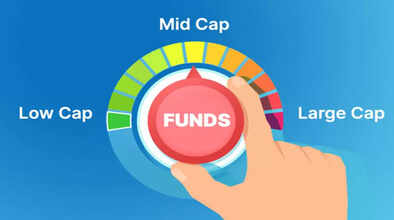Investment: What is a Mid-Cap Fund, how does it improve your portfolio, and whether you should invest in one, learn from experts..

Nowadays, everyone is investing in mutual funds. The biggest reason for this is that it can provide a minimum expected return of 12 to 14 percent. However, this return also depends on market fluctuations.
There is another special feature that attracts investors. Within mutual funds, you can invest in different types of funds. For example, if you want returns and can take risks, equity funds are for you. If you are looking for funds that offer returns but are low in risk, hybrid funds and debt funds are for you. However, equity funds have the highest chances of earning returns.
Today, we are going to discuss mid-cap funds, a category of equity funds. To learn more about mid-cap funds, we spoke with Vishal Chopra, Senior Vice President and Fund Manager of UTI AMC.
The first question that comes to every investor's mind when they hear about mid-cap funds is: how are mid-cap funds different from other funds?
Mid-cap funds can provide stable returns. They include both large and small companies. These companies are slow-growing, so their revenues tend to grow steadily. Unlike small-cap funds, they offer lower risk exposure. Thus, they offer better growth and lower risk to your portfolio.
It's important to note, however, that they carry more risk than large-cap funds. Therefore, the next question is about risk.
How can you avoid the risk associated with mid-cap funds?
To avoid the volatility of mid-cap funds, investors should invest through SIPs rather than lump sums. Choose a blended style fund, meaning one that includes both growth and value stocks.
How to get better returns from mid-cap funds?
If you want to get better returns from mid-cap funds, choose a blended style fund, a fund that includes both value and growth stocks.
Disclaimer: This content has been sourced and edited from Dainik Jagran. While we have made modifications for clarity and presentation, the original content belongs to its respective authors and website. We do not claim ownership of the content.

